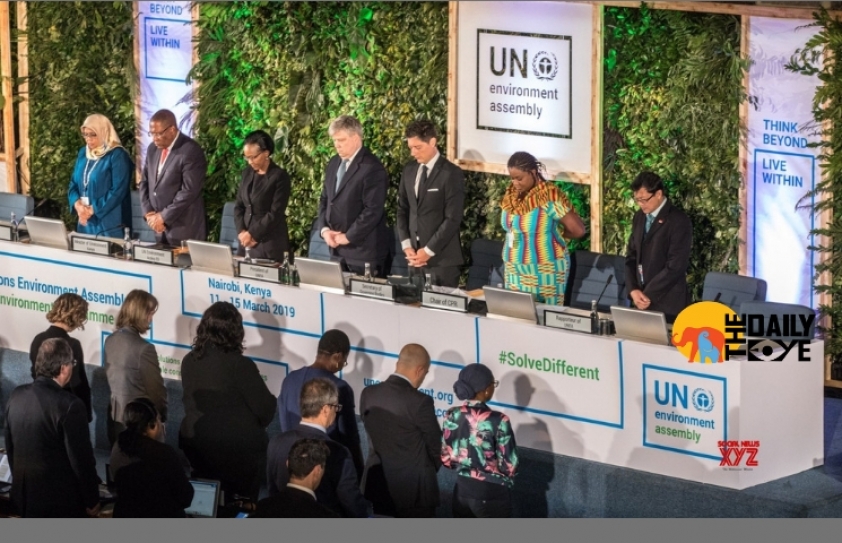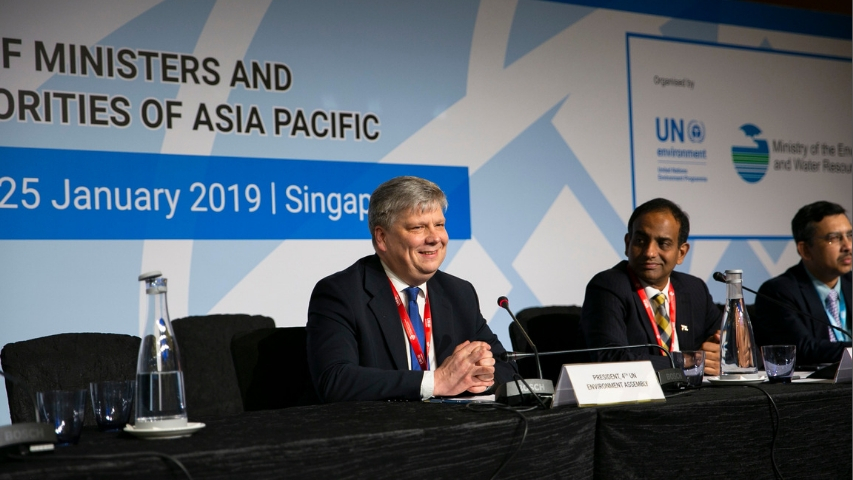
World leaders discuss resolutions for sustainable consumption and production
by Shruthi Venkatesh March 14 2019, 5:10 pm Estimated Reading Time: 2 mins, 48 secsOver 4,700 heads of state, ministers, business leaders, senior UN officials and civil society representatives are gathering in Nairobi for a meeting of the world’s top body on the environment, where they will take decisions that move global societies to a more sustainable path. It is the fourth UN Environment Assembly which is held from 11th to 15th March under the theme Innovative Solutions for Environmental Challenges and Sustainable Consumption and Production. Prominent world leaders will attend, including the Presidents of France and Kenya, Emmanuel Macron and Uhuru Kenyatta, and CEOs from major corporations.
Over these five days - bold decisions and outcomes are expected such as resolutions for more sustainable consumption and production, commitment to the protection of the marine environment from plastic pollution, reduce food waste, and advance technological innovation that combats climate change, and reduces resource use and biodiversity loss. The General Assembly also focuses to bring all sectors together while the global environment agenda is proposed. Decisions have a profound impact on the goals of the Paris Agreement and the 2030 Agenda for Sustainable Development, as well as paving the way towards the UN Climate Change Summit 2019 and impacting the overall UN agenda.

Siim Kiisler, President of UNEA and Minister of Environment, Estonia (IISD Reporting services)
UN Environment’s Acting Executive Director, Joyce Msuya wrote in a policy letter stating “Time is running short. We are past pledging and politicking. We are past commitments with little accountability. What’s at stake is life, and society, as the majority of us knows it and enjoy it today”.
It is expected that a UN Environment background report will be delivered which paves a way for defining problems and laying out new action areas, making the case more strong. The report puts the value of lost ecosystem services between 1995 and 2011 at $4 trillion to $20 trillion; shows how agricultural practices are putting increasing pressure on the environment, costing an estimated $3 trillion per year, and estimates pollution-related costs at $4.6 trillion annually. The Assembly will also see new research launched by UN Environment, including: Global Environment Outlook 6 – a latest edition on a global scan of environment which was produced by 252 scientists and experts from over 70 countries. The International Resource Panel’s Global Resources Outlook, meanwhile, takes stock of material extraction, including the future outlook and recommendations on how to use natural resources more sustainably.
The One Planet Summit, co-organized by the governments of France and Kenya, and the World Bank – is also being held around the edges of the Assembly, focusing on Africa’s environmental challenges. “It’s clear that we need to transform the way our economies work, and the way we value the things that we consume,” said Msuya. “The goal is to break the link between growth and increased resource use, and end our throwaway culture.”
“As never before, the time to act is now,” said President of the UN Environment Assembly and Minister of Environment of Estonia, Siim Kiisler. “We know we can build more sustainable, prosperous and inclusive societies with sustainable consumption and production patterns that address our environmental challenges and leave no one behind. But we will need to create the enabling conditions for this to happen. And we will need to do things differently.”




-173X130.jpg)
-173X130.jpg)
-173X130.jpg)

-173X130.jpg)
-173X130.jpg)

